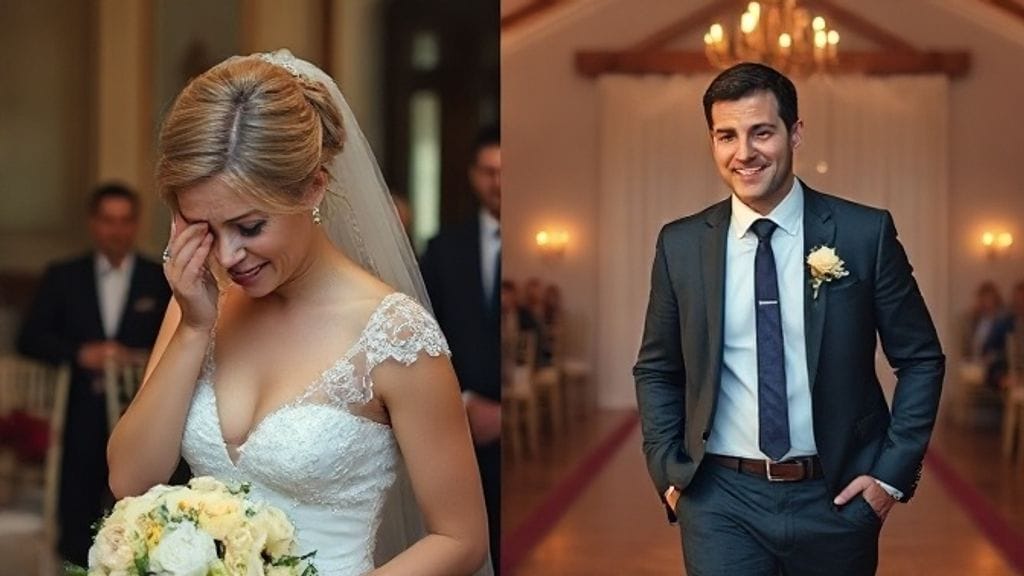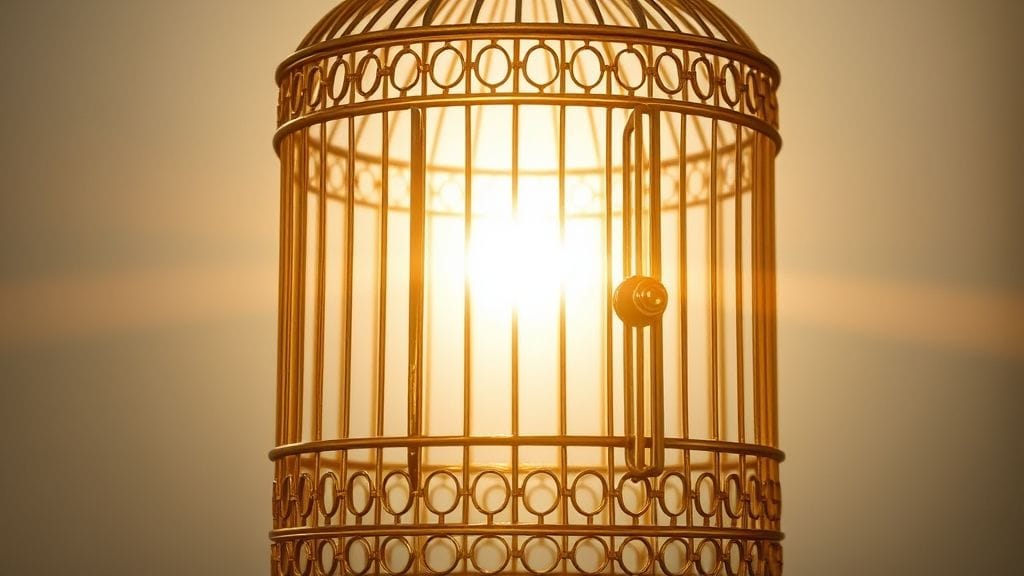
Torn Between Marriage and True Love?
What if the dress hanging in your closet, the one you searched for for months, suddenly feels like a costume because you’re in love with someone else? What if the ring on your finger, once a symbol of joyful promise, now feels like a cold, metal secret, a daily reminder that you’re in love with someone else? Your wedding is planned, the invitations are sent, but your heart is screaming a name that isn’t your fiancé’s.
Why This Dilemma Haunts So Many
This isn’t a melodramatic movie plot. This is the silent, gut-wrenching reality for countless people walking down the aisle, smiling through the terror. Are you about to make a mistake you’ll regret forever? That haunting question isn’t a sign of cold feet; it’s a five-alarm fire in your soul, and ignoring it is the riskiest gamble of your life.
Is It Wrong To Marry Without Love?
We live in a world of curated perfection. Social media feeds are filled with gleaming photos of happy couples, but they never show the quiet desperation behind the eyes. Why do people settle? The reasons are a tangled web of fear and practicality:
The Surprising Reality Couples Don’t Tell
- The Fear of Being Alone: The dread of an empty future can feel more immediate than the abstract pain of a loveless marriage.
- The Sunk Cost Fallacy: “We’ve been together for five years. Our families are invested. The deposits are paid.” You convince yourself that throwing good life after bad is better than admitting a mistake.
- The “Good Enough” Partner: They are kind, reliable, stable—everything you’re supposed to want. But that electric, ca n’t-breathe-without-them feeling is absent. You tell yourself that passion fades anyway, so why not start with comfort?
Here’s the controversial, surprising angle nobody wants to admit: A marriage built on comfort and convenience can work, but it will always have a ceiling. It can be a partnership, a companionship, a successful co-parenting arrangement. But it will lack the transformative, soul-deep connection that carries couples through the darkest times. It’s the difference between building a house on a solid foundation of concrete versus building it on a bedrock of diamond. Both will stand, but only one will truly, brilliantly, shine.
Commitment without passion is a business arrangement. And while a business can be profitable, it will never write you love poems, never look at you with awe after twenty years, and never make you feel truly, madly, deeply known.
Emotional Infidelity—Cheating or Harmless?

The Gray Zone Few Dare To Admit
Let’s name the monster in the room. You haven’t physically cheated. But you are in love with someone else. Your mind constantly wanders to them. You share your deepest thoughts with them. You feel more seen and alive in a five-minute text exchange with them than in a whole week with your partner.
Is this cheating?
The terrifying truth is, emotional infidelity is often more devastating than a physical affair. A one-night stand can be written off as a drunken mistake. But giving your heart, your emotional intimacy, and your spiritual energy to someone else is a systematic dismantling of your primary relationship. It’s not a stumble; it’s a migration of the soul.
If you hide these feelings and marry anyway, you are not just keeping a secret. You are building your marriage on a fault line. The cost? A life of quiet resentment. Every casual touch from your spouse might feel like a betrayal of the one you truly love. You’ll lock away your most authentic self, becoming a ghost in your own home, haunted by the “what if.” The stigma is real because the damage is real. You’re not just cheating on your partner; you’re cheating yourself out of an authentic life.
Choosing Spouse versus Lover: The Impossible Decision
This is where philosophy meets the brutal, beautiful pavement of real life. Let’s consider two confessions:
Shocking Stories of Regret and Relief

- Amara’s Regret: “I went through with the wedding. I thought my feelings for the other man would fade. They didn’t; they festered. I grew distant, my husband grew suspicious. We divorced two painful years later. I lost my husband, my home, and the respect of our families. By the time I was free, the other man had moved on. I lost them both. My regret is a physical pain I carry every day.”
- Ben’s Relief: “I called off the wedding two weeks before. It was the most brutally difficult thing I’ve ever done. There was anger, tears, financial loss, and immense shame. But the moment I did it, the crushing weight on my chest was gone. I wasn’t sure if the other woman and I would even work out, but I knew, with absolute certainty, that marrying my fiancée would have been a lie. I chose honesty over comfort. It was the first real step I’d taken in years.”
Some, like Ben, found freedom by choosing the terrifying path of honesty. Others, like Amara, learned that a double life is a prison sentence. There is no universal answer, only universal consequences.
When Commitment Clashes With Passion
Is it possible to love two people at once? Psychologists say yes—human hearts are not binary. You can feel a deep, affectionate love for your partner and a thrilling, passionate love for another. The conflict isn’t a sign you’re a bad person; it’s a sign you’re a complex one.
What Experts Say About “Double Love”
However—and this is the crucial part—while you can feel love for two people, you can only build a life with one. The fantasy of the “double life” is just that—a fantasy. Sustainable, healthy relationships are built on transparency, trust, and exclusive emotional investment. The energy you pour into a secret love is energy stolen from your primary relationship. This clash isn’t a puzzle to be solved; it’s a choice to be made.
The Ultimate Guide: How To Decide Whom To Marry
5 Provocative Questions To Ask Yourself

You need more than feelings; you need brutal clarity. Find a quiet moment and ask yourself these questions with raw honesty. Your answers could upend your entire future.
5 Provocative Questions To Ask Yourself
- The “Thirty Years” Test: Imagine yourself at 70. Looking back on your life, which path fills you with a greater sense of peace: a life built with your partner, or one filled with the haunting mystery of what could have been with the other?
- The “No Third Option” Test: If both your partner and your lover were to disappear from your life tomorrow, who would you mourn more deeply? Not who you’d feel guiltier about losing, but whose absence would truly shatter your world?
- The Foundation Test: Are you running towards a future with one, or simply running away from a future with the other? (e.g., fear of being alone, family pressure).
- The Authenticity Test: With which person can you be 100%, unapologetically, your true self? With whom do you feel you must hide parts of your personality to be accepted?
- The Trauma Test: Is this “true love” a healthy, stable connection, or is it an intense trauma bond fueled by drama and uncertainty? Don’t mistake anxiety for passion.
Should You Marry Someone If You’re In Love With Someone Else?
The untold truth is this: Marrying someone while in love with another is not a noble sacrifice; it is a profound act of self-betrayal with devastating collateral damage. You are not only risking your own future happiness but also fundamentally deceiving your partner, robbing them of the chance to be with someone who chooses them completely and freely.
Don’t Settle—Or Pay the Price
The consequences of settling are a slow-acting poison—a life of quiet resentment, “what if” daydreams, and the soul-crushing weight of a secret. The price of calling it off is immediate, sharp, and public: shame, guilt, financial loss, and disappointment. One pain is a clean break; the other is a lifetime sentence.
Dare to demand both real love and real commitment. The greatest risk isn’t the humiliation of calling off a wedding. The greatest risk is spending the rest of your life in a beautiful, perfect, gilded cage, knowing you hold the key—and were too afraid to use it.

📌 FAQ Section In Love With Someone Else
❓ Should I tell my fiancé I’m in love with someone else?
Yes — if you want a marriage built on truth, you owe them honesty.
It will hurt. It might break hearts, cancel weddings, and cause chaos — but silence will hurt far worse in the long run. Every day you keep this secret, you’re building a future on a lie. Imagine your partner finding out five years from now, after they’ve given you their trust, their time, maybe children — the devastation would be unbearable.
Honesty is not cruelty; it’s respect. Tell them gently, with compassion, and take responsibility for your feelings. They deserve the chance to choose a partner who loves them fully, not partially.
❓ How do I stop loving someone before my wedding?
You can’t “snap out” of love like turning off a light switch — and forcing yourself to might leave you numb, not healed.
Start by accepting your feelings instead of fighting them. Journal about why you love this person and what they represent. Sometimes, what we think is love is actually an escape — from fear, boredom, or loneliness.
Limit contact with the person, even if it feels like withdrawal. Create physical and emotional distance so your mind has space to reset. Seek support — a therapist, a trusted friend, even online forums where you can process your emotions safely.
Most importantly, ask yourself: are you trying to stop loving them because it’s inconvenient, or because you truly believe your fiancé is your forever? Clarity, not suppression, is what you really need.
❓ Is emotional cheating before marriage normal?
Yes — it’s more common than people admit. Many engaged people develop crushes or emotional attachments to others when they feel trapped, scared, or disconnected from their partner.
But “normal” doesn’t mean harmless. Emotional cheating is a sign that something is wrong — either in your relationship or within yourself. Don’t ignore it. Treat it as a wake-up call, not a passing phase.
You have two choices: face it and heal, or hide it and let it fester. Pretending everything is fine will only deepen the rift between you and your partner. Use this moment to decide what kind of marriage you want — one built on authenticity, or one that survives only by burying the truth.
Disclaimer: This post is for informational and emotional support purposes only. Every relationship is unique, and this is not professional legal, medical, or mental health advice. Read our full disclaimer.
Affiliate Disclosure: Some links in this post may be affiliate links. If you make a purchase through them, I may earn a small commission at no extra cost to you. Learn more here.
Pingback: When a Woman Loves Two Men: What You Should Know - Love and Breakups
I haven’t checked in here for a while because I thought it was getting boring, but the last few posts are great quality so I guess I’ll add you back to my daily bloglist. You deserve it my friend 🙂